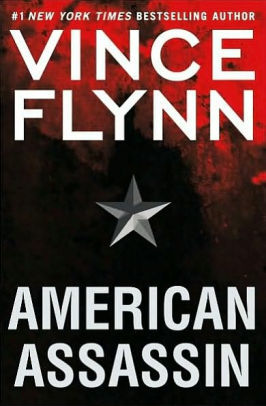
American Assassin
Chapter 8
by Flynn, VinceThe provided excerpt from Chapter 8 of *American Assassin* by Vince Flynn primarily consists of promotional material, critical acclaim, and publishing details rather than narrative content. The chapter title and opening lines suggest a focus on Mitch Rapp, the protagonist, as he reflects on his mission in Beirut, Lebanon. However, the bulk of the text highlights the book’s reception, with quotes from reviewers praising Flynn’s gripping storytelling and Rapp’s character as a formidable CIA operative akin to Jason Bourne.
The excerpt emphasizes the novel’s timeliness and relevance to post‑9/11 counterterrorism themes, with reviewers lauding its fast-paced action, political intrigue, and realistic portrayal of national security challenges. Critics describe the book as a standout in the thriller genre, with Mitch Rapp’s evolution into a lethal assassin serving as a central draw. The praise underscores Flynn’s ability to blend suspense with contemporary geopolitical concerns.
Additional sections detail the book’s copyright information, acknowledgments, and a dedication to the victims of the Pan Am Lockerbie terrorist attack. Flynn expresses gratitude to his wife, editors, and industry professionals for their support, noting the collaborative effort behind the novel’s success. The acknowledgments reveal his long-standing desire to explore Rapp’s origin story, framing this book as a career highlight.
The chapter’s closing lines reintroduce the narrative with Rapp questioning his sanity while staring into a mirror in Beirut, hinting at the psychological toll of his mission. This abrupt shift from promotional content to the protagonist’s internal conflict creates a jarring yet intriguing transition, setting the stage for the high-stakes action typical of Flynn’s work.
FAQs
1. What is the central premise of Vince Flynn’s American Assassin based on the provided chapter content?
Answer:
American Assassin is a thriller that follows Mitch Rapp, a CIA-trained operative, as he becomes a key player in America’s war on terror. The novel explores Rapp’s origins and transformation into a lethal weapon against terrorism, set against the backdrop of geopolitical tensions. The chapter highlights Rapp’s steely determination and the high-stakes nature of his missions, positioning him as a Jason Bourne-like figure for the post-9⁄11 era. The book has been praised for its action-packed narrative and timely themes, reflecting the complexities of modern counterterrorism.2. How does the chapter characterize Mitch Rapp, and why is he compared to Jason Bourne?
Answer:
The chapter describes Mitch Rapp as a “young man primed to become an American assassin” with a “steely gaze” and unparalleled skills in covert operations. He is compared to Jason Bourne—the protagonist of Robert Ludlum’s series—due to his exceptional combat abilities, strategic brilliance, and role as a lone operative navigating dangerous geopolitical landscapes. Like Bourne, Rapp operates in morally ambiguous scenarios, blending physical prowess with psychological depth. This comparison underscores Rapp’s status as a quintessential action hero for contemporary thrillers.3. What themes or societal issues does American Assassin address, according to the chapter’s excerpts?
Answer:
The novel tackles themes such as the moral dilemmas of counterterrorism, the tension between political correctness and national security, and the psychological toll of warfare. Critics note its exploration of “the enemy’s psyche” and its critique of bureaucratic obstacles that hinder effective action. The chapter also emphasizes post-9⁄11 anxieties, portraying Rapp as a necessary force in a world where traditional rules fail. These themes resonate with readers concerned about homeland security and the ethical limits of defending democracy.4. How does the chapter establish Vince Flynn’s reputation as a thriller writer?
Answer:
The chapter showcases Flynn’s acclaim through effusive praise from critics and media figures, labeling him “the voice of today’s postmodern thriller generation.” His works are celebrated for their realism, pacing, and intricate plots, with American Assassin hailed as “spectacular and exceptionally timely.” Comparisons to Dan Brown and endorsements from figures like Bill O’Reilly and Larry King cement his status as a master of political intrigue. The excerpts highlight his ability to blend action with sharp commentary on contemporary issues.5. Why might American Assassin appeal to readers interested in modern political thrillers?
Answer:
The novel’s fusion of high-stakes action, geopolitical relevance, and a complex protagonist makes it compelling for fans of the genre. The chapter positions Rapp as a “Rambo for the war on terror,” offering cathartic victories against real-world threats. Flynn’s meticulous research (noted by The Washington Post) and critiques of bureaucracy add depth, while the fast-paced narrative ensures broad appeal. For readers seeking escapism with a grounding in current events, American Assassin delivers both entertainment and provocative insights.
Quotes
1. “Behind the steely gaze of the nation’s ultimate hero is a young man primed to become an AMERICAN ASSASSIN”
This quote encapsulates the core premise of the novel - the origin story of Mitch Rapp’s transformation into a lethal CIA operative. It highlights the duality of his character as both a patriotic hero and a trained killer.
2. “Rapp is still the best CIA-trained human weapon this side of Jason Bourne.”
This comparison from the Contra Costa Times emphasizes Rapp’s exceptional skills as an operative, positioning him as one of fiction’s most formidable action heroes in the espionage genre.
3. “Simply stated, there’s nothing better than watching Mitch Rapp in fiction knock off the bad guys nobody seems able to get in fact.”
This quote from The Providence Journal speaks to the wish-fulfillment aspect of Flynn’s novels, where Rapp succeeds where real-world counterterrorism efforts often fail, making the series particularly appealing to readers.
4. “A Rambo perfectly suited for the war on terror.”
The Washington Times’ description captures how Rapp represents a post-9⁄11 action hero - one who operates in the morally complex world of modern counterterrorism rather than the clear-cut conflicts of earlier eras.
5. “Every American should read this book.”
Bill O’Reilly’s endorsement reflects how Flynn’s novels resonated with conservative audiences by presenting a tough-on-terrorism perspective during the War on Terror era.
